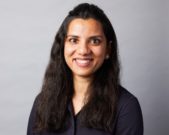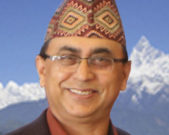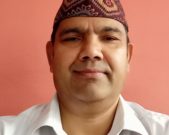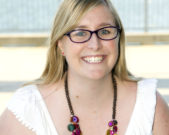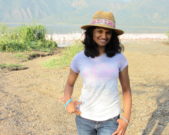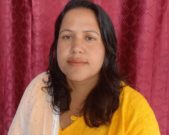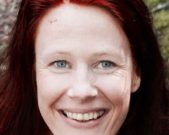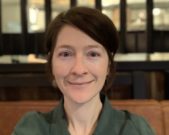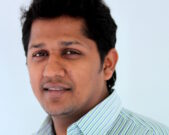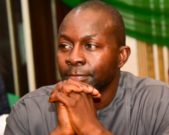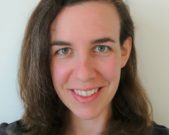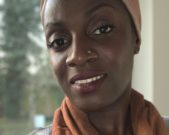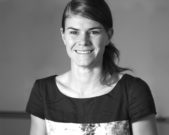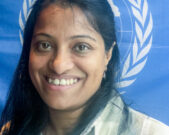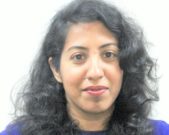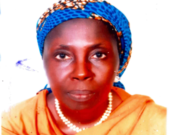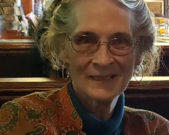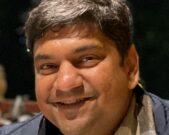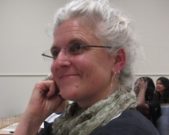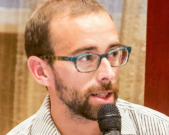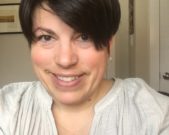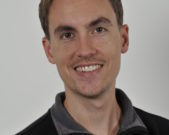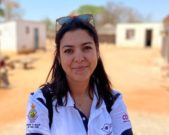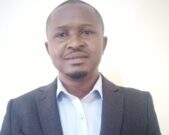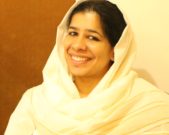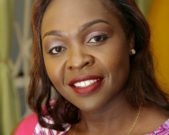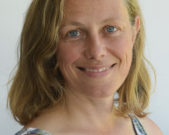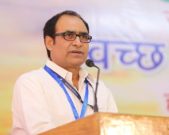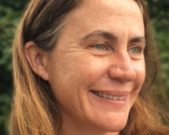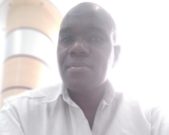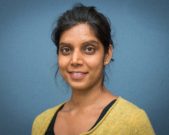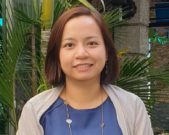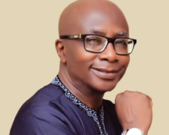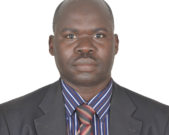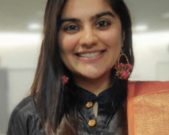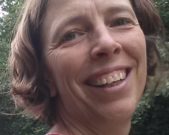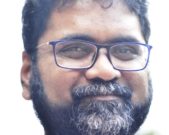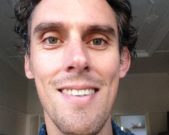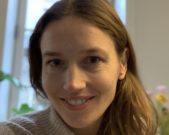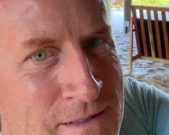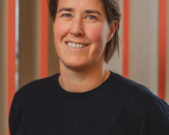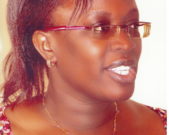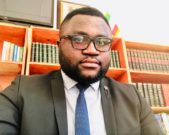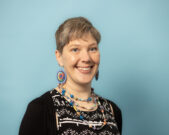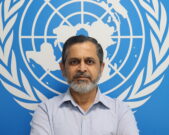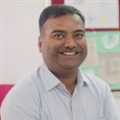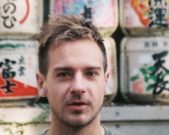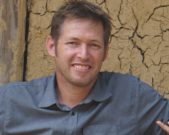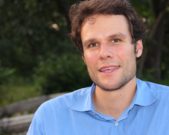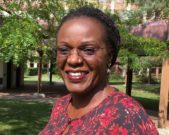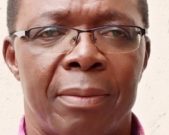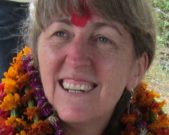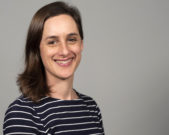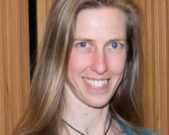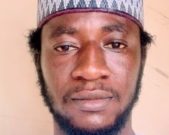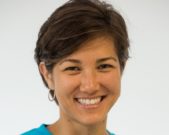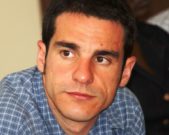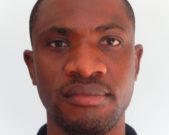
Our Collaborators
Find out about some of our collaborators, who have worked with us on our publications, workshops, blogs and videos.




Avni has over six years of experience of managing research projects in the international development sector, across the areas of water, sanitation and hygiene (WASH) with a cross-cutting focus on gender equality and social inclusion (GESI).
Bharat Adhikari, currently works as a communication and capacity development expert at the Rural Water Supply and Sanitation Fund Development Board under the Ministry of Water Supply. For the past two decades his work has been instrumental in bringing the WASH sector closer to the media - achieving vital constitutional changes for WASH in Nepal.
Mr. Kamal Adhikari was one of the key architects of the Sanitation and Hygiene Master Plan 2011 of the Government of Nepal that triggered the nationwide ODF campaign. Having more than two decades of experience in the WASH sector, he published the book titled Sanitation in Nepal: Past, Present and Future in 2012.
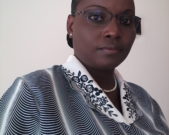

Yadjidé coordinates the activities of PAPHyR executed in Benin. It implements the National Strategy for the Promotion of Basic Hygiene and Sanitation, with CLTS as the gateway.
A lecturer at the Department of Science, School of Continuing Education, Bayero University Kano. He is currently a PhD geography candidate (with specialization in environmental management) at the Department of Geography, Bayero University, Kano. His areas of interest are Faecal Sludge Management, Water Resource Management, Pollution Control and Ecological Hazards.
Abdulwahab is a civil engineer with over 30 years experience working in WASH. He helped introduce CLTS to Yemen back in 2007 and is now Head of Water and Environment Unit for Yemen Social Fund for Development, leading their rural sanitation activities.
Koushiki is a development professional with 10+ years of experience working on WASH and public health in India and briefly on humanitarian WASH in Africa. She is currently working as the WASH-CCES Monitoring and Evaluation focal point in UNICEF India country office. She is an alumnus of London School of Hygiene and Tropical Medicine and a Jeroen Ensink Scholar (2017).
Dr Dani Barrington is a Lecturer in the School of Population and Global Health at The University of Western Australia. Her research uses inclusive participatory methods that encourage people to talk openly about sensitive sanitation issues, particularly menstruation and incontinence.
Amita is a freelance consultant with 7 years’ experience in working on equality, non discrimination and inclusion in WASH. Amita holds a PhD on the WASH needs of perimenopausal women making the transition to the menopause in urban Ghana.
Manja has been working with Rural Village Water Resources Management Project (RVWRMP) in Nepal since 2017. Long term experience with different organizations on Gender Equality and Social Inclusion (GESI), WASH and Menstrual hygiene management issues of grassroots level. Completed Master's degree in Education 2015 and Masters in Sociology 2019 form Tribhuwan University.
Co-founder and former staff member at the CLTS Knowledge Hub, IDS, now consultant with 13 years' experience of knowledge management, participatory workshop facilitation, communications and networking. Interested in behaviour change and embodied leadership in environment and social justice.
A social scientist and researcher focused on WASH in Asia and Pacific regions, Naomi’s research includes WASH-gender equality nexus, integration between WASH and planetary boundary considerations, and approaches to progressing Human Rights to Water and Sanitation at local government level.
Paresh has 11+ years’ experience in the development sector. He is keenly interested in governance, public policy, public finance, and social justice aspects of WASH. His doctoral research analyses the developments in sanitation policy and the determinants of planning FSM at the sub-national levels in India.
Nanpet’s team at United Purpose, using demand-led initiatives and innovations in sanitation, achieved Nigeria’s first ODF Local Government in 2016. They have since produced three more local government areas, demonstrating how sanitation models can be taken to scale to reach whole geographic regions. He was the SLH In-country Focal Person for Nigeria, and is currently the Head of Programmes, WaterAid Nigeria.
Mimi was a Research Officer with SLH until summer 2023, working on timely, relevant and actionable learning activities in the sanitation and hygiene sector. She previously worked for a number of NGOs designing and implementing WASH programmes across Africa and Asia. Since leaving SLH she has been managing the development, delivery and evaluation of community-centered public health interventions for the London Borough of Tower Hamlets.
Portia Dery is a Ghanaian writer and development worker with a deep interest in community development, literacy, and youth issues. She runs readings clinics for children via the African Youth Writers Organization (AYWO), writes children’s fiction and works in a rural district as a social development officer.
Michelle Farrington is a specialist working in public health and epidemic response. She has over 10 years of experience working in humanitarian and low-income contexts across Africa, Asia and the Middle East.
Christine's work focuses primarily on the use of participatory methodologies in formative research and evaluations, in order to enhance behaviour change interventions for public health. Christine is also currently studying for a PhD on the effectiveness of WaSH behaviour change interventions for pastoralist communities in Afar region, Ethiopia.
Naomi Francis is a researcher and educator in the water, sanitation and hygiene (WASH) sector. She is based in Melbourne, Australia and works in Asia and the Pacific.
Ananya Ghoshal is a WASH Officer working in one of the largest states of UNICEF India – Uttar Pradesh, for the past 5 years having experience of over 19 years in the social sector, working with some of the renowned international organizations. She has supported in the formulation of the National Guidelines for MHM in India.
Menusha Gunasekara is an early career Development researcher in Sri Lanka, working on an EU-funded WASH project. She is a Chevening alumni and holds an MA in Social Development from University of Sussex, UK.
Aashish grew up in Delhi, India. He completed a 5 year integrated MA in Development Studies from the Indian Institute of Technology, Madras. His research interests include social inequality (caste, gender and age), health, environment, demography and social policy.
Currently I’m consulting for Sahei Gender Development Initiative on WASH and other humanitarian response. Previously, Director for Water Quality and Hygiene Education in rural water supply and sanitation agency and Borno state (Nigeria) environmental protection agency - organised WASH interventions in the 27 LGAs. Experience: Cholera Rapid Response, WASH in Emergency, WASH in schools, MHM, Sanitation Marketing, CLTS, FSM, GBV response, prevention and counseling.
Suzanne, an applied anthropologist focused on South Asia, has worked on sanitation issues in Bangladesh since 1997. Her special expertise is in programme evaluation, monitoring, participatory planning, women’s human rights and development, and combining qualitative and quantitative research methods.
Rushabh Hemani is a WASH Specialist working with UNICEF Rajasthan Office, India Country Office having experience of 19 years in the WASH Sector. He has experience of working in four diverse states of India including Gujarat, Chhattisgarh, Assam and Rajasthan with a focus on the most marginalized and vulnerable communities.
Sophie has more than 20 years’ experience in sanitation and hygiene approaches, programmes, and strategy development. She is specialised in individual, team, and institutional capacity building, as well as knowledge management and knowledge exchange processes
Sarah is a consultant and a Public Health Engineer with 30 years-experience in development, humanitarian and fragile contexts in Africa and Asia. Passionate about building capacities to better involve, work together with and support people who are most disadvantaged and excluded, and people living with incontinence.
Andrés provides strategic leadership to WaterAid's sanitation policy, research and advocacy. He has a cross-disciplinary background, combining an engineering degree and extensive development research experience, including a PhD focused on rural sanitation in India.
Chelsea focuses on reducing inequalities in access to water, sanitation and hygiene in Southeast Asia and the Pacific region. She has led research, policy and advocacy efforts for eight years on issues of disability inclusion, gender equality and menstrual health.
Martin Keijzer, hydrogeologist, worked from 1983 in WASH projects in Africa, Asia and from the Netherlands, mainly as coordinator. He gradually included CLTS, ecosan, solid waste and participatory approaches into water projects to ensure continued benefits after-project : sustainability. He can be contacted on [email protected]
Jocelyn is all about people. She helps translate research, project material, and people’s lived experiences, into meaningful content for sharing. She brings expertise in sustainability, gender equality and Indigenous relations to her communications and storytelling work.
Jeremy is a water, sanitation, and hygiene (WASH) researcher specialising in applied and transdisciplinary research. His interests include climate change and WASH, rural WASH sustainability in the Asia-Pacific region, sanitation in informal settlements, and WASH services in Pacific island countries.
Islay's work across the International Centre for Evidence in Disability (ICED) and International Centre for Eye Health (ICEH) focuses on quantitative survey methods for measuring the prevalence of impairment and disability, and highlighting the participation restrictions people with disabilities too frequently experience.
Benjamin Masila is a BSc. Environmental Health graduate and an MPH 2023 finalist, with 10+ years of experience in integrated health programs and WASH across Kenya, South Sudan, and global advocacy, gained through providing oversight and collaboration with notable organizations. He possesses excellent WASH & M&E technical skills and is passionate about humanitarian work.
Mahreen Matto (PhD) is an environmental professional with over 10 years of contribution in research, policy advocacy and capacity building in the area of mainstreaming urban water and sanitation management in human settlements of South Asian and African Countries.
Founder and CEO of Ellem Marketing & Communications, which contributes towards creating social impact through BCC, social marketing, and innovative social enterprises, Lillian is dedicated to understanding how people think and decide and developing innovative approaches for positive lasting behaviours.
Elaine managed the SLH website, newsletter and social media channels until autumn 2023, facilitating learning and sharing activities, creating engaging video and written outputs, and leading on visual methods research.
Vinod Mishra is the India Coordinator for WSSCC and has developed their strategy to support SBM-G in India. Recent work includes policy advocacy initiatives to promote collective behaviour change, Leaving No One behind, capacity building, MHM and Rapid Action Learning.
Sujoy Mojumdar is a Senior WASH Specialist with UNICEF at New Delhi, supporting the Government of India’s rural sanitation and water supply programmes. He has served the Government of India in multiple capacities in the Forestry, drinking water and sanitation sectors.
Joanna is the Gender and Social Inclusion (GSI) Advisor for the Water for Women Fund. With 25 years’ experience working in international development, principally in the areas of GSI and WASH, she’s interested in facilitating adult learning for transformative change.
Nilanjana Mukherjee, an independent social development professional, has worked for three decades through The World Bank and UNICEF, with country governments in Asia and Africa facilitating policy learning, sector reform and capacity building to improve access to improved WASH services.
Twitty Munkhondia is a holder of Master of Public Health degree obtained from the University of Sheffield in UK. He has worked for over 14 years both with international and national NGOs in WASH in Malawi.
Priya has been working on gender and inclusion issues in development for more than 10 years and before that worked for equality bodies, disability charities and inside governments. She has co-authored tools and publications to support female-friendly sanitation, inclusive WASH in Health Care Facilities, use of inclusive terminology, gender responsive project design, and transgender inclusive sanitation.
I have 13 years’ experience in WASH in the SEA region, focused on women’s empowerment and social inclusion, results-based financing, monitoring and evaluation. I pioneer innovative approaches to solve fecal sludge management challenges and advocate private sector engagement in Vietnam.
Bioye is a WASH specialist for the UNICEF Country Office Abuja, Nigeria. As a WASH Specialist in charge of Sanitation, Bioye supports the Federal Government of Nigeria in the bid to end open defecation in the country by 2025 .
A 1991 Chevening Alumnus with a wide public, private and civil society development sector experience with emphasis on the WASH and specifically on the sanitation Sector for over 30 Years. He has collaborated with local an international experts on key subject areas of sanitation, especially in FSM, sanitation economy, financing, capacity, vulnerability, among others.
Denis is a senior civil servant with over 10 years of experience in implementing hygiene and sanitation improvement activities, disease control, research, health services planning and management. He has been networking and coordinating activities of international and local partners implementing health intervention activities.
Miss Grace Okwisa is a communications specialist. Her areas of expertise include communication and advocacy strategy design and implementation, multifaceted internal and external communication functions, public information management, social and conventional media information dissemination, and project management. She has over 5 years of experience in communications for WASH.
Ceasar Onen is a Monitoring and Evaluation Consultant and an Executive Director of Doveland Community Development Organisation. He is passionate about improving the lives of marginalised populations in health system strengthening, climate change and education, using participatory rights-based approaches.
For over 10 years Philip has worked in the WASH sector facilitating national and international workshops leading to successful CLTS roll out in Africa, and capacity building of partner organizations in strengthening and mainstreaming hygiene and sanitation in their programmes.
An alumnus of IDS (Jan 2021), Prachi is the co-founder of a social impact consultancy, 'Evolverance'. She works towards fostering community-based organisations through capacity building to create sustainable solutions in India. Her interest areas are WASH, participatory action research, and education.
Dr. Pare Toe’s doctoral research enabled her to specialize in the socio-anthropological analysis of health problems in Africa specifically in vector borne diseases. She has developed a great interest in the field of research on malaria from an anthropological point of view. Recently, she conducted investigations about climate change and rural sanitation in eastern part of Burkina Faso.
Katherine has over 20 years of experience in the development sector, principally in the fields of community led total sanitation, disaster risk reduction and sustainable livelihoods. Experience includes carrying out evaluations; delivering training; documenting lessons; and producing online learning resources.
VR Raman has over three decades of work on equity, inclusion and human rights. He has unique associations with various missions of Government of India including the Swachh Bharat Mission on universal sanitation. He has rich research experience and works with several WASH, health and environmental organisations. He also teaches. He was the SLH In-country Focal Person for India.
Tom is an engineer who found social behaviour change to be the greatest engineering challenge. With 15 years’ experience working across Australia, Eastern Africa, East Asia and the Pacific, Tom is a passionate WASH Program Manager at Plan International. Australia.
Line is a freelance consultant, with more than 10 years’ experience working with children and youth, covering various topics from WASH to irregular migration and smuggling. She holds a PhD in anthropology and is passionate about bridging knowledge and practice.
Florencia has professional experience in research, monitoring, evaluation and learning, knowledge management and capacity building on topics related to water, sanitation and hygiene (WASH) in developing countries. Technical support to policy and programming working with academia, development agencies and NGOs.
An independent WASH specialist based in the French alps, working for more than 30 years on design, implementation, evaluation and research of water supply, sanitation and hygiene services in Africa and Asia.
Sharon Roose is a WASH Advisor in SNV with experience in the management and implementation of WASH projects. She currently leads the WASH component within the multi-country Voice for Change Partnership (V4CP) evidence-based advocacy programme.
Claire is researching the provision of emergency sanitation for children with urinary incontinence.
Lewnida Sara is an Operations Analyst with the World Bank Group based in Kenya. Lewnida has been supporting the Government of Kenya towards the attainment of Kenya’s sanitation goals. She currently also supports various lending projects within the WASH sector.
Warren is the founder of the Patient and Citizen Involvement in Health, an organisation that helps the most disadvantaged people gain sustained access to health and social care. A health economist, Warren has worked and consulted extensively in Sub-Saharan Africa on health financing, market access for global public goods, health technology assessments, and public and social policy.
Dr Rebecca Sindall is an international public health researcher with participatory research expertise in water and sanitation, injury prevention, learning from failure, and risk reduction.
Dr. Prabhakar Sinha is a senior professional with WASH sector experience of almost 3 decades, currently leading the UNICEF WASH team in Bihar Field Office, supporting government departments to strengthen and expedite the water, sanitation and hygiene interventions under different state and national flagship programmes.
A Senior Health Manager in Civil Service with 25 years’ experience, implementing, promoting health programmes, monitoring compliance to urban and rural sanitation standards in various communities, networking with International (SUWAS), local partners and government agencies in advocating health issues.
Rachael is an early career public health practitioner holding a Master of Public Health and Bachelor of Anthropology. As a research affiliate of Outreach International, she conducts qualitative research in partnership with communities to understand the impacts of community-led development processes and associated sanitation projects.
Puneet is well known international expert on Water, Sanitation and Hygiene (WASH) both in rural and urban context. He has been working on WASH in many countries including India with many international & national organizations for more than 20 years.
A global technical adviser who has worked for international NGOs across Africa and South Asia. Her expertise is in social behaviour change, sanitation and hygiene, gender and inclusion, technical and strategic guidance, capacity building and participatory design and facilitation.
Adama has worked for over 20 years in behaviour change communication in the areas of nutrition, hygiene and sanitation in both peri-urban and rural areas. She is also experienced in the empowerment of women and the management of menstrual hygiene.
Ann Thomas is a Senior Advisor on WASH, currently working for UNICEF. A humanitarian with over two decades of experience, and dedicated to generating access to water and sanitation for the poorest, her work focuses on urban sanitation and innovative financing approaches.
Joseph is a freelance WASH Consultant with expertise in monitoring, evaluation, research, and learning across development and humanitarian programming
Paul is an engineer and WASH specialist with more than 20 years’ experience in development, covering project implementation/management, project design, evaluation and review and research, and encompassing both the technical and sociological sides of WASH.
Gregor has been with UNICEF for over 10 years, previously serving in the West Bank & Gaza, Guinea Bissau (Ebola), India, Mali, Haiti (earthquake) and Mozambique (cyclone Idai). Previously he has worked with MSF, the IADB, and the EU.
Elizabeth is currently working as part of the Technical Support Unit that provides content and guidance on WASH related implementation, advocacy and Equity and Non-Discrimination issues at national, regional and global level through various platforms and partnerships.
Dr. Jackson Wandera (PhD) specializes in WASH projects management, capacity building and innovations. He has 14 years’ experience in research and 22 years in sanitation demand creation, supply chains development, BCC and governance in Kenya, Ethiopia, South Sudan and Tanzania.
Pamela has worked with Rural Village Water Resources Management Project (RVWRMP) in Nepal since 2010 as Home-office Coordinator & Rural Monitoring and Reporting Specialist. She has recently completed her PhD with case studies from the project including gender and inclusion issues.
A Research Fellow at LSHTM focusing on disability and WASH, Jane's worked in Africa, South Asia and the Pacific Islands and has extensive experience of designing and implementing inclusive WASH programmes, research, evaluations, disseminating research to influence policy and practice.
Professor Juliet Willetts leads applied research to inform policy and practice in water and sanitation in Asia-Pacific. Her work covers technical, institutional and governance aspects, climate change, gender equality, participation, entrepreneurship and monitoring, across rural and urban contexts.
Mohammed is studying Physical Geography at Bayero University, Kano, Nigeria and is the founder and CEO of Mohaysa Educational Services. His areas of interest are climate change, environmental protection, WASH, hygiene promotion, education in emergencies, space science and pollution prevention
Brooke is a project manager and technical expert at UNICEF in WASH and water resources management, with experience working at regional, national, and community levels in the Pacific, Sub-Saharan Africa, South Asia and Central America.
Maisha has recently completed MSc International Development: Poverty, Inequality and Development from the Global Development Institute (GDI) at the University of Manchester. She previously worked as a communications specialist at the leading English daily newspaper of Bangladesh, primarily collaborating with the development sector. She is currently seeking work opportunities in the development sector. She wrote her Master’s dissertation on period poverty and plans to carry forward her research concerning diverse aspects of menstrual health.
Alfonso is dedicated to urban and rural water and sanitation both in the North and the South. He has direct involvement in cooperation and development in Tanzania, progressively gaining experience in business development in different sectors.
Chainga Zulu has been working in rural sanitation for over 12 years. His interests are public health, rural WASH and community development including their associated challenges and opportunities. He holds a master’s degree in public health.



